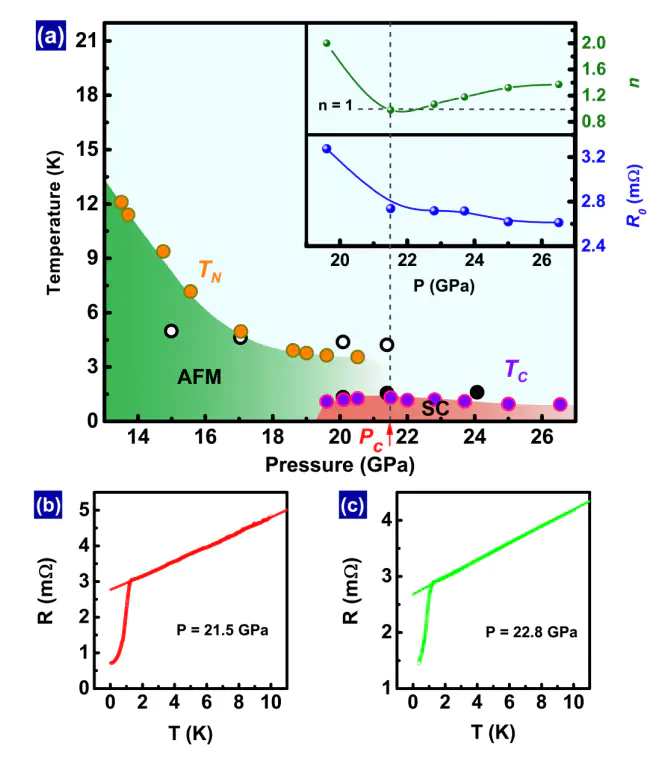Anomalous connection between antiferromagnetic and superconducting phases in the pressurized noncentrosymmetric heavy-fermion compound CeRhGe3

摘要
Unconventional superconductivity frequently emerges as the transition temperature of a magnetic phase, typically antiferromagnetic (AFM), is suppressed continuously toward zero temperature. Here, we report contrary behavior in pressurized CeRhGe3, a noncentrosymmetric heavy-fermion compound. We find that its pressure-tuned AFM transition temperature (TN ) appears to avoid a continuous decrease to zero temperature by terminating abruptly above a dome of pressure-induced superconductivity. Near 21.5 GPa, evidence for TN suddenly vanishes, the electrical resistance becomes linear in temperature, and the superconducting transition reaches a maximum. Analysis of high-pressure resistance and x-ray-absorption spectroscopy measurements suggest that the anomalous connection between antiferromagnetic and superconducting phases in pressurized CeRhGe3 is associated with proximity to a critical valence instability.